Beer is one of the oldest beverages humanity still produces.
It is drunk in virtually every corner of the world, and so it’s not surprising that almost every language, indeed every regional dialect, has more than a few slang terms for the alcoholic drink.
Canada is no exception to this rule, so today, we’re going to look at some of the most common slang terms for beer up the cold north.
Let’s get started.
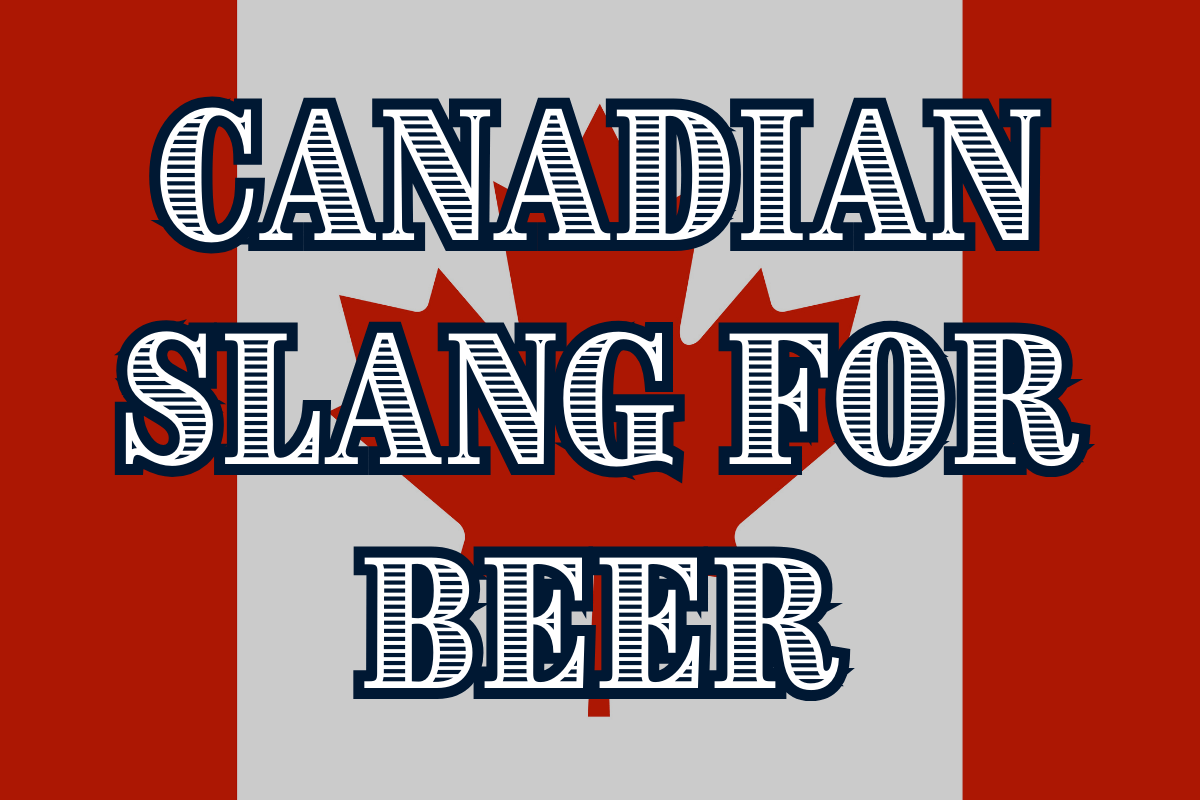
Canadian Slang For Beer
Bomber
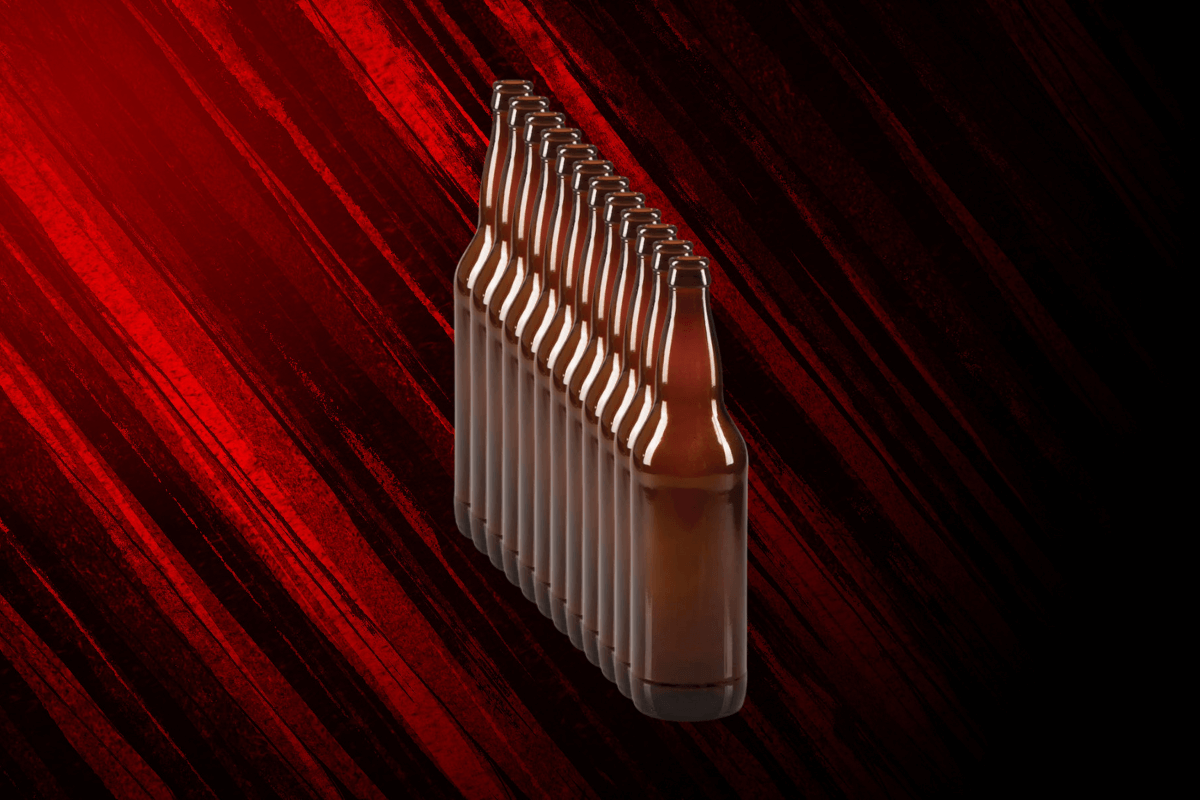
“Bomber” refers to a large 650ml (22oz) bottle of beer, typically used for craft beers or specialty brews.
The term is widely recognized in both Canada and the U.S., especially among beer enthusiasts.
Bombers are often chosen for sharing or sampling unique, limited-edition beers that aren’t sold in standard six-packs.
Examples in sentences:
- “I picked up a bomber of that new IPA everyone’s talking about.”
- “Let’s split a bomber of stout with dinner.”
- “They had a great selection of bombers at the bottle shop today.”
- “I prefer bombers over six-packs since I get to try more craft beers.”
- “This brewery releases their best stuff in bombers, so keep an eye out!”
Brewski
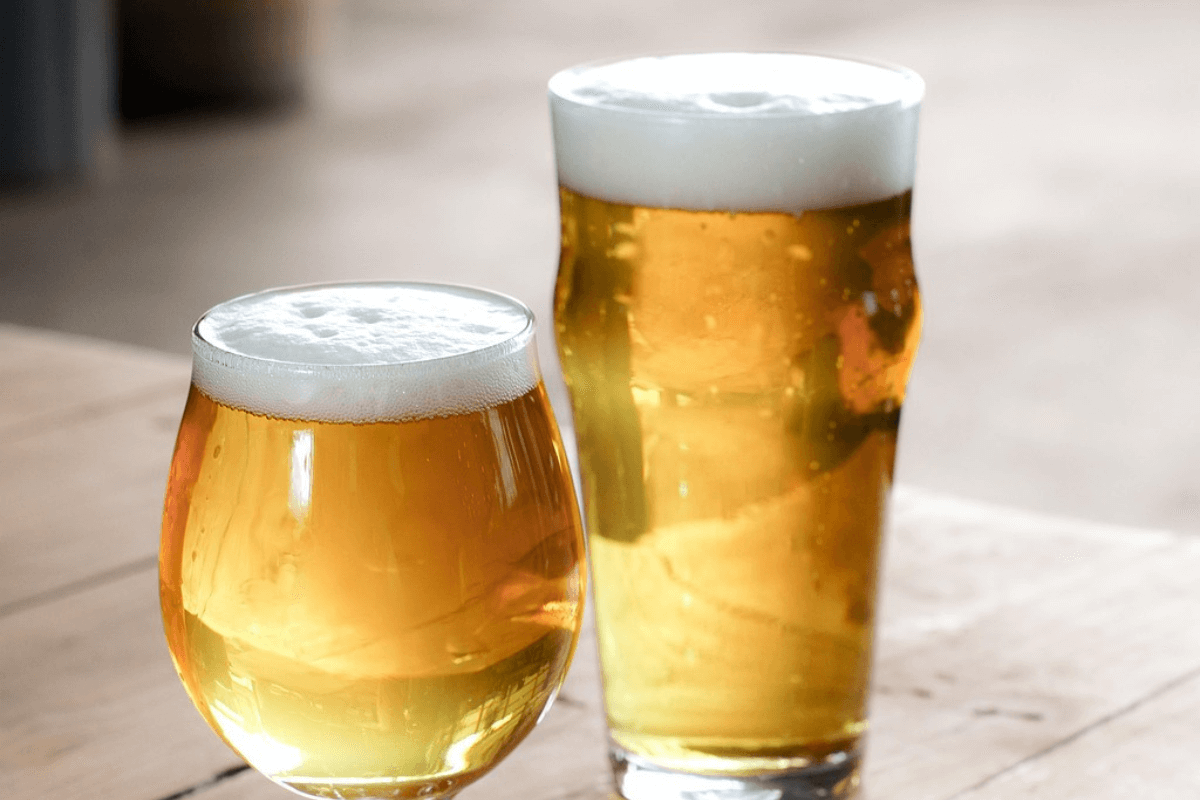
“Brewski” is a lighthearted, go-to slang term for beer, widely used across Canada and in the United States.
The term can refer to one beer (such as a bottle or can) or multiple beers in plural form (“brewskis”).
It originated from American college culture in the 1970s and was popularized through an Saturday Night Live skit.
Despite its American roots, it quickly spread north to Canada and became a staple in everyday conversation.
Examples in sentences:
- “Let’s grab a couple of brewskis for the game.”
- “I’ll bring the brewskis; you get the snacks.”
- “I could really go for a cold brewski after a long day.”
- “How about we crack open a couple of brewskis and hit the beach?”
- “We’re out of brewskis, can you run to the store?”
Fifty
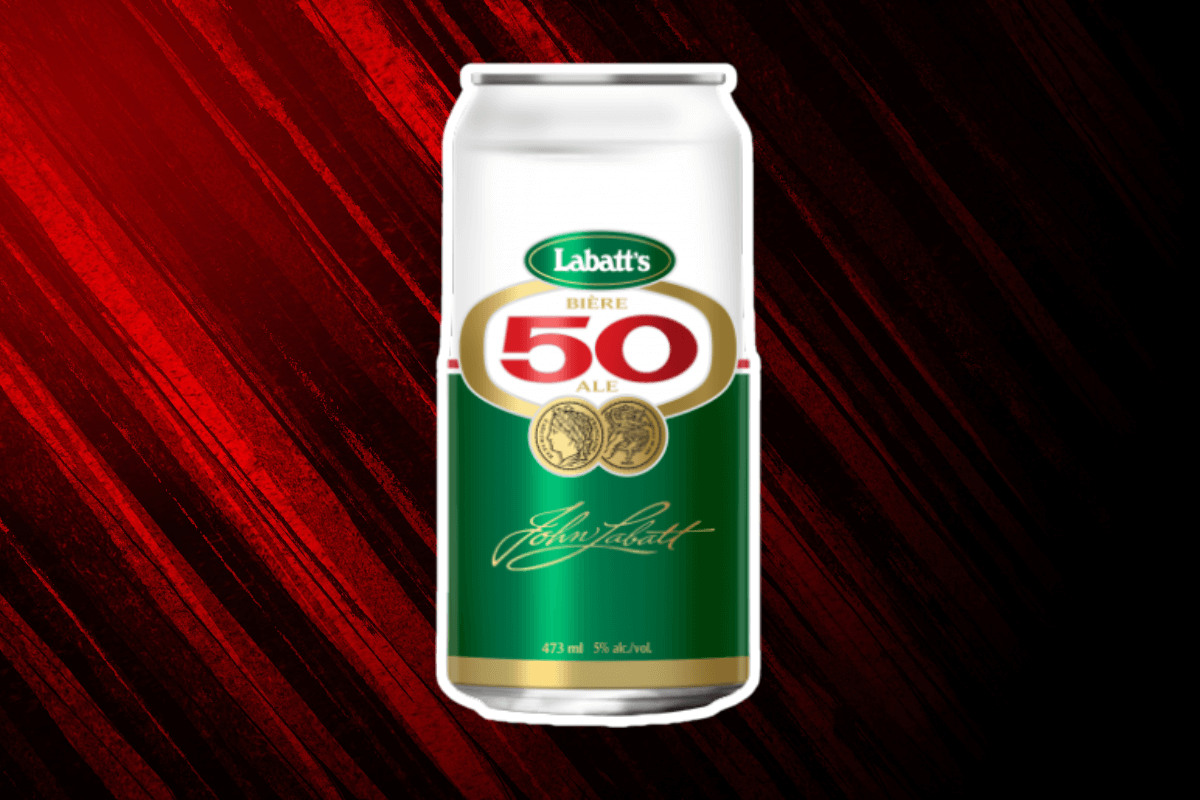
“Fifty” is a regional slang term for beer, particularly common in eastern Canada.
It originates from the popular Canadian beer brand Labatt 50, which was introduced in 1950 to celebrate 50 years of partnership between two breweries.
Over time, “Fifty” became a shorthand way to refer to the brand, and in some cases, the term has extended to mean beer in general.
While not as widely used outside of certain regions, it remains a nostalgic and well-known slang term among Canadian beer drinkers.
Examples in sentences:
- “Grab me a Fifty from the fridge, would you?”
- “Back in the day, we used to drink nothing but Fifties.”
- “He ordered a Fifty at the bar, but they only had imports.”
- “My grandfather still swears by his Fifties.”
- “Labatt 50 is a classic, but some people just call it Fifty.”
Growler
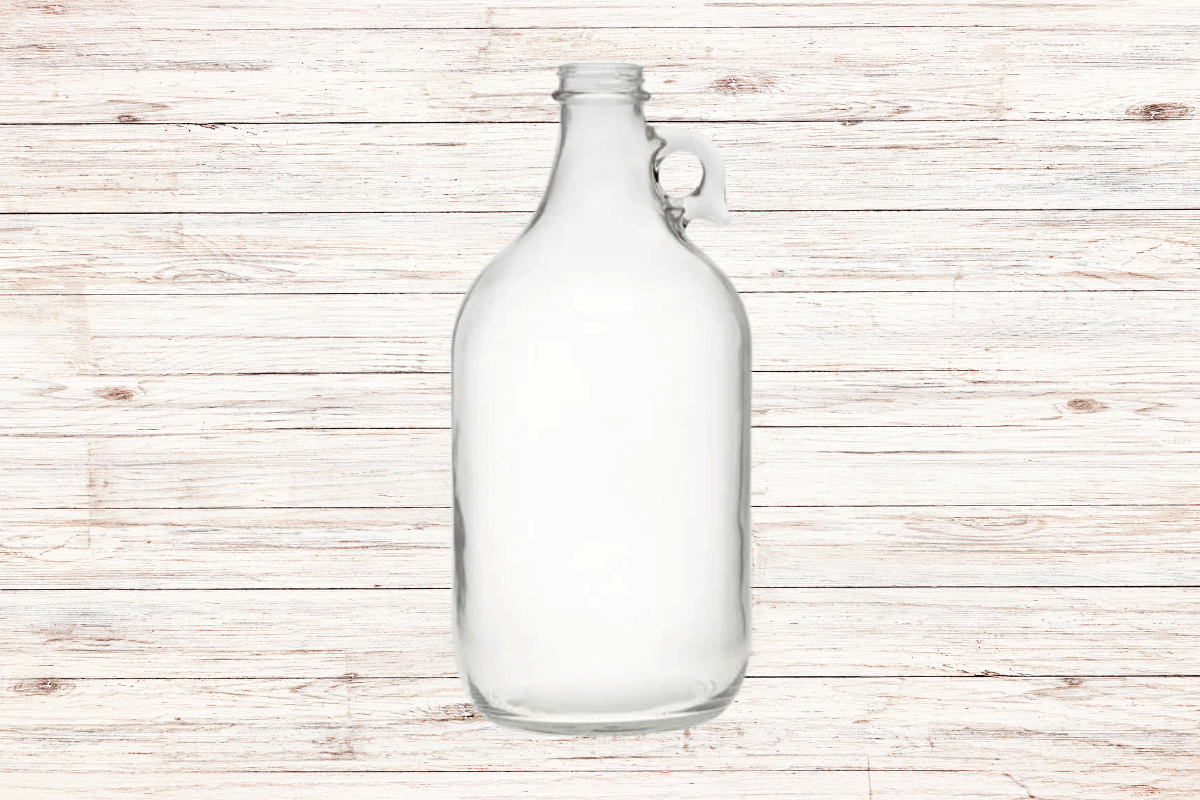
A “growler” is a slang term for a large, refillable jug used to transport draft beer.
Typically made of glass, ceramic, or stainless steel, growlers are popular among craft beer enthusiasts who want to take home fresh beer straight from the tap.
The term has been around for over a century, originally referring to metal pails used in the late 1800s that would make a “growling” sound as carbon dioxide escaped when carried.
Today, many Canadian breweries offer growlers as a sustainable way to enjoy fresh beer at home.
Examples in sentences:
- “I stopped by the brewery to fill up my growler with their latest IPA.”
- “Nothing beats a fresh growler of craft beer for the weekend.”
- “Bring your growler, and we’ll get it filled before the game starts.”
- “He showed up with a full growler—now that’s a good friend!”
- “Most local breweries offer growler refills at a discount.”
Half-sack

“Half-sack” is a Canadian slang term referring to a six-pack of beer.
Unlike larger cases like a two-four or a flat, a half-sack is a more casual and frequently purchased amount.
The origin of the term isn’t entirely clear, as beer cans or bottles have never traditionally been sold in sacks.
Some speculate it may be linked to boxed wine, which has an inner sack, but its exact origins remain uncertain.
Examples in sentences:
- “Could you go to the store and grab me a half-sack?”
- “I don’t need a whole case, just a half-sack will do.”
- “We’ve only got a half-sack left, so we might need to make a beer run soon.”
- “He walked in with a half-sack under his arm, ready for the party.”
- “A half-sack should be enough for the night, don’t you think?”
Poverty pack

“Poverty pack” is a Canadian slang term for a six-pack of beer, often used humorously to suggest that a six-pack isn’t quite enough, or that it’s the choice when money is tight.
The phrase became popular towards the end of the 20th century, though its exact origins remain unclear.
It plays on the idea that a larger case, like a two-four, is the ideal choice, while a six-pack is a compromise.
Examples in sentences:
- “I’m low on cash, so I’ll just grab a poverty pack tonight.”
- “A two-four would be better, but a poverty pack will have to do.”
- “He walked in with a poverty pack—guess payday isn’t until next week!”
- “We only have a poverty pack left; should we go get more?”
- “A poverty pack is better than no beer at all!”
Quart
“Quart” is a term used in Canada to describe a large bottle of beer.
While the name originates from the imperial measurement system—where a quart is a quarter of a gallon—Canada has long since switched to the metric system.
Despite this, the term remains in use, having likely been borrowed from American slang.
If you’re ordering a quart, expect to get a big bottle rather than a smaller can or stubby.
Examples in sentences:
- “I’ll grab a quart on the way home—should be enough for the night.”
- “Back in the day, my granddad always had a quart of beer after work.”
- “You want a regular beer or are you going for a quart?”
- “Quarts are great if you don’t want to keep running back for more drinks.”
- “He walked in carrying a quart like he was ready for a proper sit-down.”
Suitcase
“Suitcase” is a modern slang term for a 24-pack of beer, inspired by the way beer cases often have built-in cardboard handles on top.
When carried, the case resembles a suitcase, making the name a natural fit.
Though the term can sometimes apply to other sizes, it’s most commonly used for a full case of 24 beers, as this is the standard size.
Examples in sentences:
- “Could you grab a suitcase for the party tonight?”
- “He walked in carrying a suitcase—now it’s a real celebration!”
- “Nothing says ‘Friday night’ like cracking open a suitcase of cold ones.”
- “A two-four? Just call it a suitcase and get drinking!”
- “They had a sale, so I picked up a suitcase for the weekend.”
Two-four/twofer

“Two-four” is a Canadian slang term referring to a case of 24 beers, a size commonly available in the country.
It can also be spelled as “twofer” and is pronounced this way.
The name is simply a playful combination of the digits “two” and “four,” which make up the number 24.
This term is especially popular for casual occasions like parties or gatherings.
It may also have its origins tied to the national holiday, May 24th, Queen Victoria’s birthday, when many Canadians would buy a two-four to celebrate.
Examples in sentences:
- “I’m heading to the store to grab a two-four for the BBQ this weekend.”
- “Do you want me to bring a two-four to the party?”
- “We picked up a twofer on the way to the cottage for the long weekend.”
- “Nothing says Canada Day like a two-four of beer!”
- “Let’s grab a two-four and head to the beach this afternoon.”
Two-eight

“Two-eight” is a Canadian slang term referring to a crate of 28 beers. It follows the same pattern as “two-four” (a case of 24 beers), but without a catchy alternative spelling like “twofer.”
While less common than “two-four,” this term is still used among beer drinkers in Canada to describe a larger case of beer.
If you’re stocking up for a big gathering, a two-eight might be the way to go!
Examples in sentences:
- “I’m thinking of picking up a two-eight for the camping trip this weekend.”
- “They didn’t have any two-fours left, so I grabbed a two-eight instead.”
- “A two-eight should be enough for everyone at the party.”
- “He showed up with a two-eight—looks like we’re set for the night!”
- “If we’re having a big crowd over, we might as well go for a two-eight.”
Many tend to assume that Canada borrows most of its slang from the neighboring United States.
While they certainly do share a lot of the same slang terms for beer, Canada also plainly has a rich lexicon of its own slang terms for beer, too.
These are the most common among those.
Let us know what you think in the comments!
More in Canadian Slang
- 10 Canadian Slang Terms For Beer To Sound Like A Local
- Canadian Slang For Cigarettes (Explained!)
- Canadian Slang For Drunk (28 Examples!)
- Canadian Slang For Friend (Helpful Content)
- Canadian Slang For Hello (Explained!)
- 10 Canadian Slang Terms For Hot Girls You Need To Know
- Canadian Slang For Money (Explained!)
- Canadian Slang For No (Helpful Content)
- Canadian Slang For Snowmobile (Helpful Content)
- Canadian Slang For Yes (Explained!)

